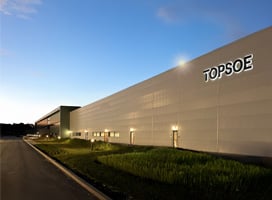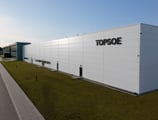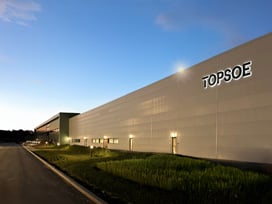Demand for paper has recently accelerated and is expected to continue rising, driven by both population and economic growth.¹ But the manufacture of paper produces dust, smoke, fumes and gases that affect air quality, as well as a toxic byproduct known as black liquor and other waste materials. At the same time, the industry is highly competitive and even the slightest changes in performance can have a huge effect on the bottom line.
In recent years, we at Topsoe have been working hard to help the paper industry convert the byproducts and waste materials into energy and other valuable products. Our emissions management solutions enable you to meet legislation and convert sulfurous off-gases into valuable sulfuric acid. And our chemical processing solutions enable you to upgrade waste, including black liquor, into fuels and a broader range of valuable chemicals, in a cost-efficient way.
Knowledge & insights
Featured topics
-
Featured
.png) Topsoe Academy™ Topsoe Academy™ is your chance to tap into over 80 years of accumulated knowledge Find out more
Topsoe Academy™ Topsoe Academy™ is your chance to tap into over 80 years of accumulated knowledge Find out more -
 Discover how we meet the new energy reality to drive a sustainable future. Read
Discover how we meet the new energy reality to drive a sustainable future. Read
Solutions
Back
Solutions
Industries
-
Offerings
- Technologies
- Services
- Catalysts
- Power-to-X
News & events
Back
News & events
Careers
-
 If you’re ready to work alongside inspiring people like Hadise, Go solve at Topsoe.A place to make an impactRead
If you’re ready to work alongside inspiring people like Hadise, Go solve at Topsoe.A place to make an impactRead









